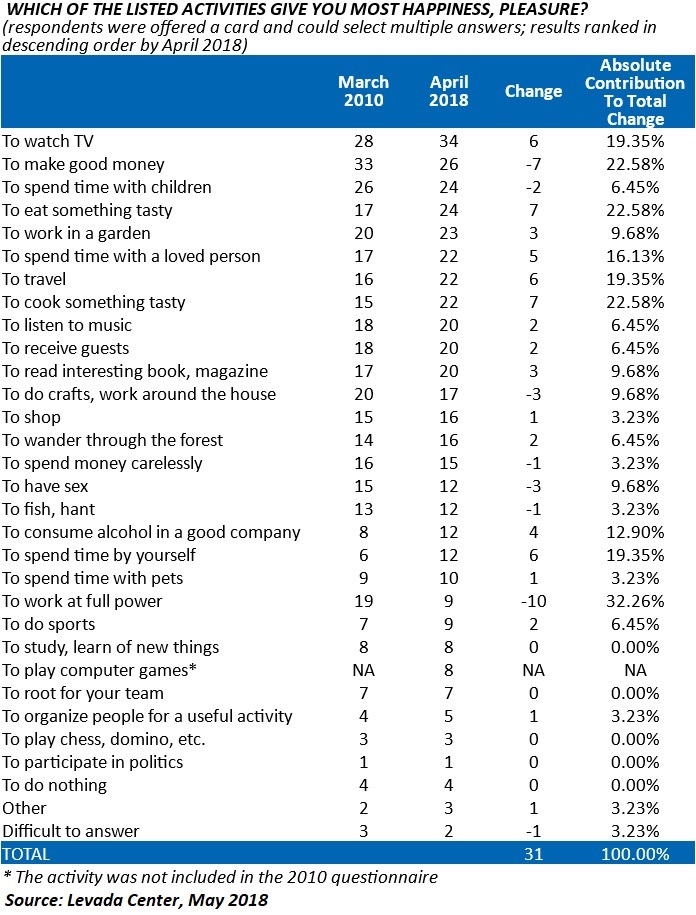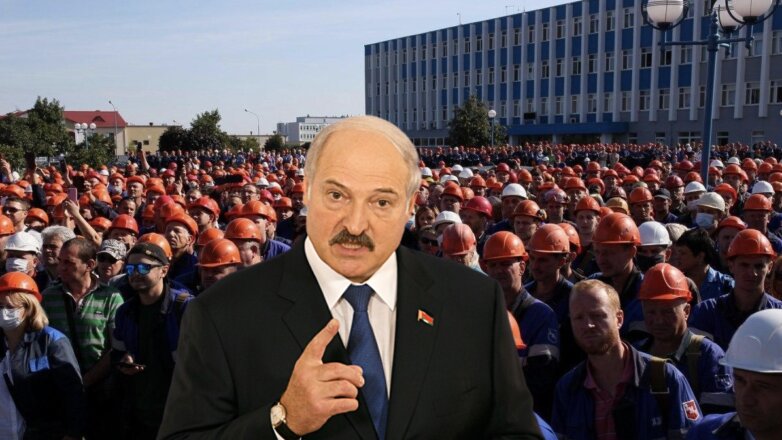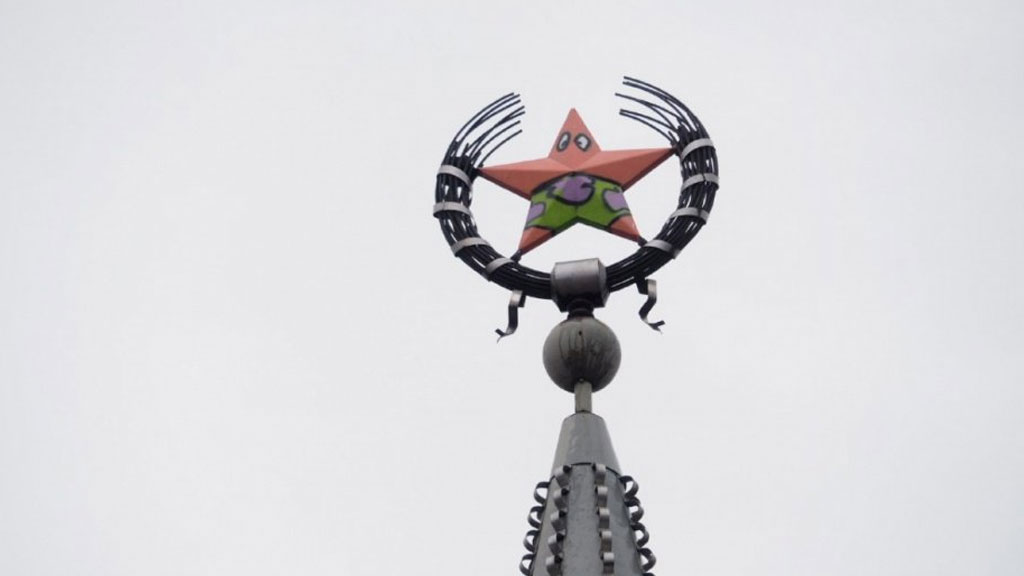There have been innumerable surveys of Russian attitudes over the last decade, but most of them have been limited in their value by the fact that participants likely answered some of the most important questions by saying what they believed those behind the polls wanted to hear, Igor Yakovenko says.

But two polls, one taken in 2010 and a second just now by the Levada Center asking Russians to identify those things which give them the greatest satisfaction and joy do not suffer from that limitation, he continues; and they show that “a small revolution” has taken place in Russian preferences.
In the two years, Russians were asked to identify those things that gave them the most pleasure and joy. (They could identify more than one.) In 2010, 28 percent said watching television did; in 2018, 34 percent; in 2010, 33 percent said a good income; in 2018, 26 percent. In 2010, 17 percent said eating well; in 2018. 24 percent.
And thus the answer to the question – who has become the chief beneficiary of the occupation of Crimea, the war against Ukraine and Putin genocide of Syrians? – is television.
Among the losers in this list are “the Russian economy, business, the standard of living including the overwhelming majority of the so-called ‘elite,’ and civil society.” Among the “beneficiaries,” in addition to television, are “the siloviki and the defense sector.”
“It is possible,” Yakovenko says, “that the most important part of the mental consequences of ‘Crimea is Ours’ are connected with the attitude of Russians toward work.” The share saying working at full capacity received 19 percent of the answers in 2010, putting it in fifth place, but only nine percent eight years later landing it in 21st.
“The growth in the love of Russians for television has even eclipsed sex.” Fifteen percent of Russians listed sex as a favorite activity in 2010, but only 12 percent did so in 2018. Consequently, “the expression ‘Russia is married to Putin’ is gradually losing the character of an ironic metaphor.”
Yakovenko sums up: “Television, having become the chief joy … has sharply reduced joy from getting good money, completely destroyed the view of work at full power as a satisfaction and reduced to a minimum the joy of sex.” TV may have helped Putin build power, but it is now getting in the way of his demographic and economic goals.
Read More:
- Survey: Most Russians say they want a democracy but don’t support democratic values
- Russians far more imperialist now than they were in Soviet times, Cossack historian says
- ‘The world has stopped loving or even respecting Russia and Putin,’ Shevtsova says
- Moscow, not Kyiv, behind ethnocide of ethnic Russians in Ukraine, Yakovenko says
- Ethnic Russians having become Estonian citizens form increasing share of Estonian Defense League
- Putin views Russians as ‘divided people,’ thus threatening all Russia’s neighbors, German historian says
- Lithuanian Prime Minister: don’t separate the Kremlin and the Russians; this is a mistake
- Putin says Russia ‘ruled by God’ and presents Russians as victims of Holocaust
- Soviet chekists weren’t the professionals Putin wants Russians to think they were, new book says
- Since 1945, Moscow has been involved in a military action on average every 2 years










